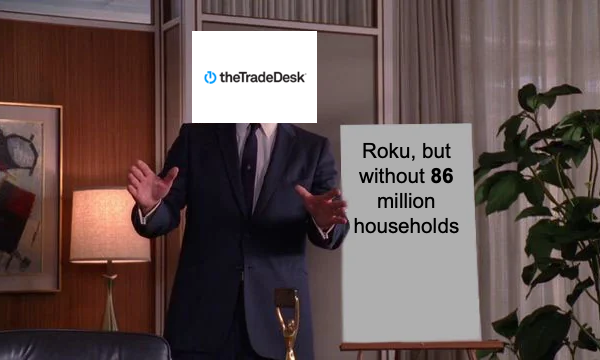The future: A lower ad load filled with more targeted ads.
4 reasons why this will be the future according to Dave Morgan:
1) Most ads people see are irrelevant, redundant or both.
2) More consumer control over ads.
3) More ad-free media products.
4) Ability to optimize most advertising.
Why does this matter? The customer’s attention is more scarce than ever and therefore extremely valuable. A recent survey found that the average marketer valued 1 minute of attention at $1.81.
Quick math:
1) Assuming $20 CPM for 30s ads
2) $0.04 per minute of advertising
3) $1.81 equals the value of 1m focus from customer
4) The break-even for an advertiser would be 1 out of every 91 ads holding the customer’s attention.

Flashback #1: TV needs fewer commercials, but the math is going to be hard
Other options: Better targeting (addressable, optimized linear, etc.) will bring higher CPMs (4X+) which will allow for a lower ad load while growing total revenue. This is a rare win for both the advertiser and network.
Flashback #2: Fox Wants to Reduce Ad Time to Two Minutes per Hour by 2020
Current/Proposed ad time per hour (% change):
1) 2018–13m
2) 2020–2m (↓ 85%)
How could Fox potentially make up the lost revenue from fewer minutes of ads?
1) Increase the cost of each remaining ad
2) Run shorter ads (6s, etc.)
How would the math for #1 work?
1) 2017 Primetime — $43/CPM
2) 2020 Primetime — $280/CPM



